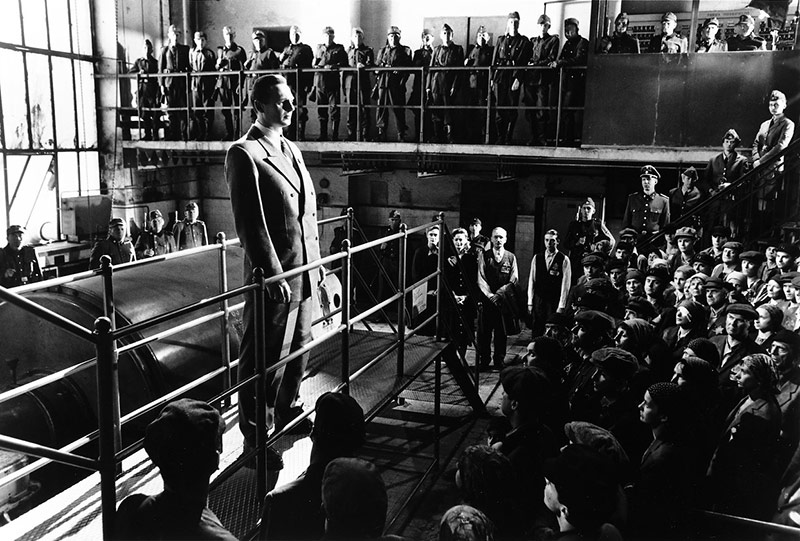”Schindler’s List 1993”
Suggested videos:
Suggested videos:
Suggested videos:
Suggested videos:
Schindler’s List (1993), directed by Steven Spielberg, is a powerful historical drama based on the true story of Oskar Schindler, a German businessman who saved the lives of more than a thousand Polish Jews during the Holocaust. The film is widely regarded as one of the greatest films of all time and is noted for its profound impact and emotional depth.
Plot Overview:
Set against the backdrop of World War II and the Holocaust, the film follows Oskar Schindler (Liam Neeson), a member of the Nazi Party and a businessman who initially seeks to profit from the war by employing Jewish workers in his factory. As he witnesses the horrific atrocities committed against the Jewish community, Schindler’s motivations evolve from profit to compassion. He uses his influence and resources to save as many Jews as possible by employing them in his factory, ultimately creating a list of those he would protect from deportation to concentration camps.
Key Strengths:
- Emotional Impact: The film is profoundly moving, capturing the horrors of the Holocaust with a raw and unflinching approach. Spielberg’s direction and the haunting score by John Williams contribute to the emotional weight of the narrative.
- Liam Neeson’s Performance: Neeson delivers a remarkable portrayal of Oskar Schindler, embodying the complexity of a man who transitions from a self-serving businessman to a compassionate savior. His performance is both charismatic and deeply human, making Schindler a compelling figure.
- Supporting Cast: The film features strong performances from a talented ensemble cast, including Ben Kingsley as Itzhak Stern, Schindler’s Jewish accountant, and Ralph Fiennes as Amon Goeth, the sadistic Nazi officer. Fiennes’ portrayal of Goeth is chilling, showcasing the banality of evil and the depths of human depravity.
- Cinematography: Shot in black and white by Janusz Kamiński, the cinematography adds a stark and haunting quality to the film. The choice of black and white not only reflects the grim reality of the time but also enhances the emotional gravity of the narrative. The use of color in certain scenes, such as the girl in the red coat, serves as a poignant visual metaphor.
- Historical Accuracy: The film is lauded for its commitment to historical accuracy and its respectful portrayal of the Holocaust. It serves as an important reminder of the atrocities of that period, aiming to educate future generations about the dangers of hatred and intolerance.

Weaknesses:
- Graphic Violence: The film contains intense and graphic depictions of violence and suffering, which may be difficult for some viewers to handle. While this brutality is necessary to convey the horror of the Holocaust, it can be jarring and distressing.
- Pacing: Some viewers may find the film’s pacing slow, particularly in its first half. The meticulous detail and development of characters might lead to a lengthy runtime that can feel exhaustive.
- Complex Themes: While the film is deeply impactful, its heavy themes and subject matter may be overwhelming for some viewers. The emotional weight of the story requires a significant investment from the audience.

Legacy:
Schindler’s List received widespread critical acclaim and won seven Academy Awards, including Best Picture and Best Director for Spielberg. It has left a lasting legacy as a crucial work in the canon of Holocaust cinema and continues to be used as an educational tool to teach about the atrocities of World War II. The film is often cited as a seminal piece of art that highlights the importance of humanity, compassion, and the moral imperative to stand against oppression.
Conclusion:
Schindler’s List is a haunting, powerful, and essential film that confronts the darkness of human history with unflinching honesty. Its portrayal of Oskar Schindler’s transformation from a profit-driven businessman to a compassionate savior is both inspiring and heartbreaking. The film’s impact is profound, serving as a reminder of the horrors of the Holocaust and the capacity for individual acts of courage and kindness in the face of overwhelming evil. It remains a poignant cinematic experience that resonates with audiences to this day.











